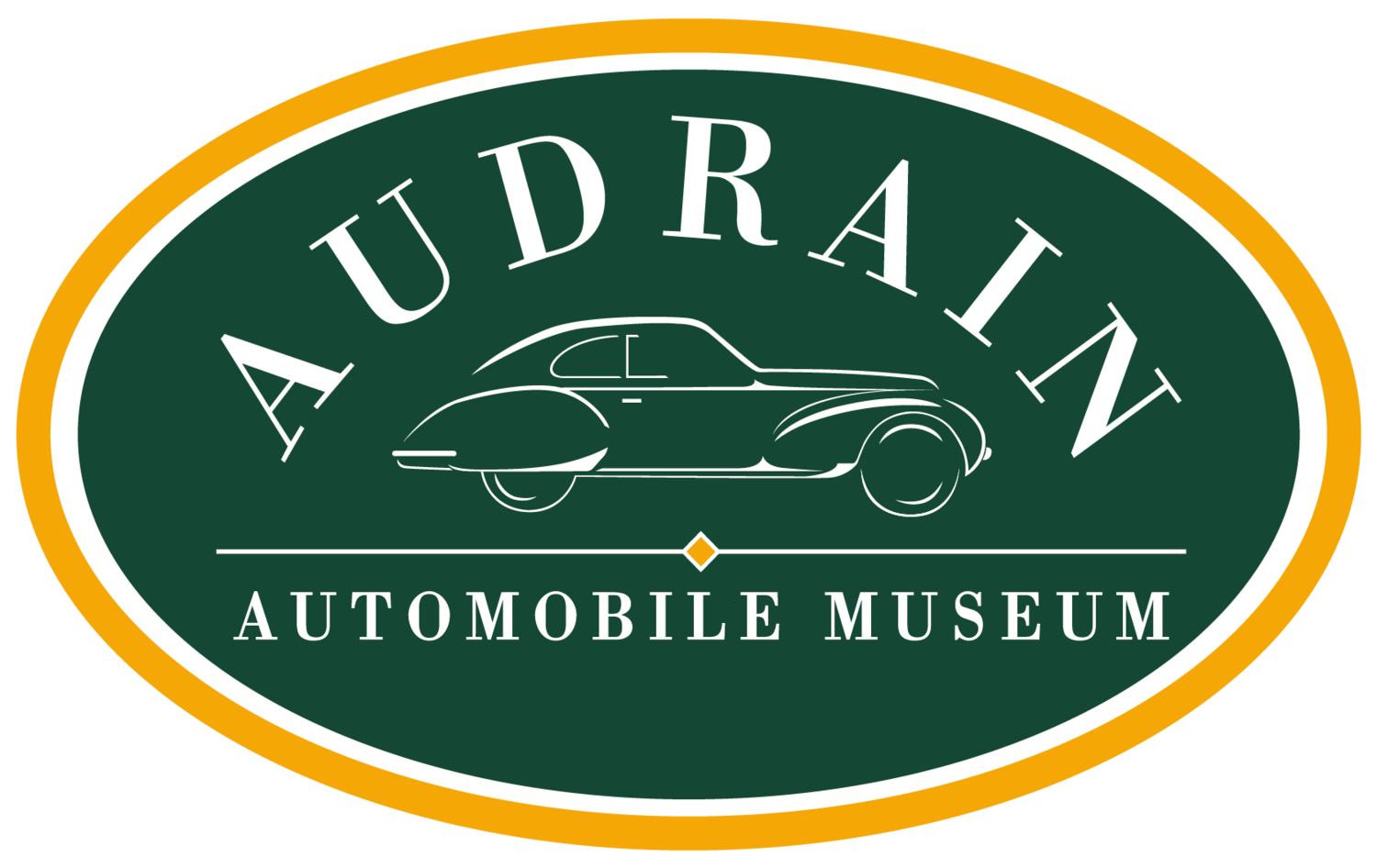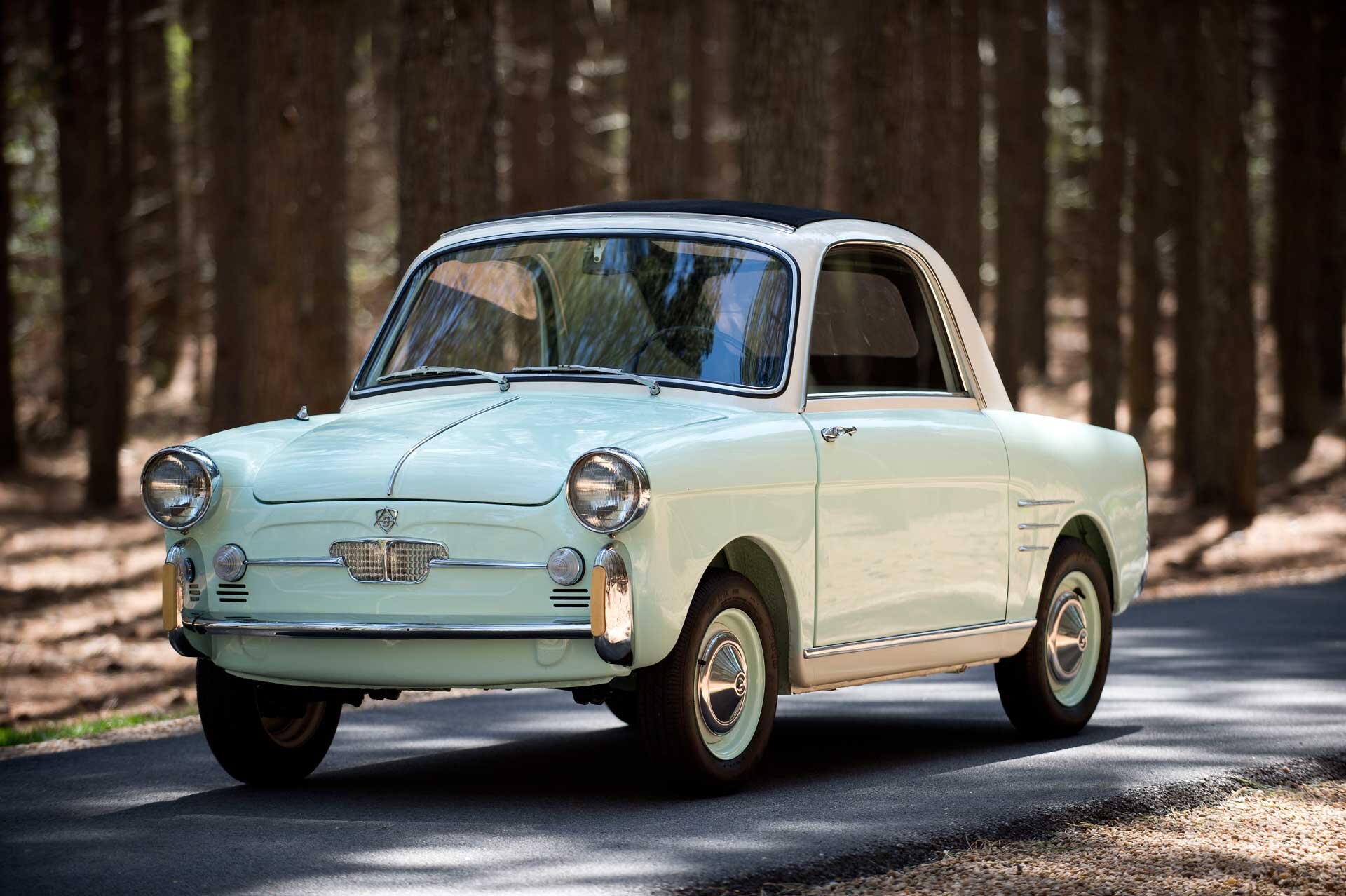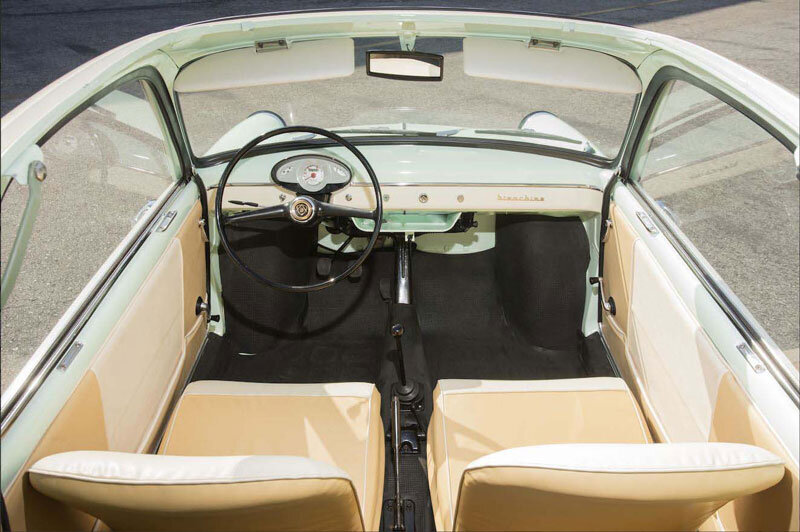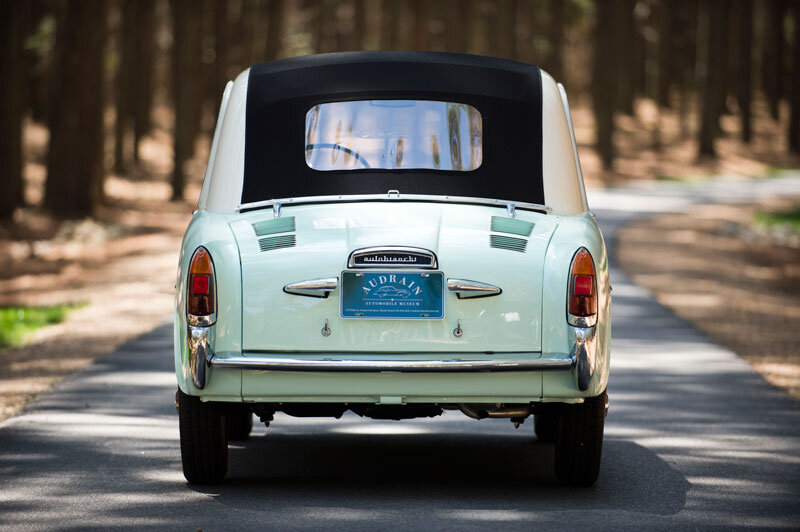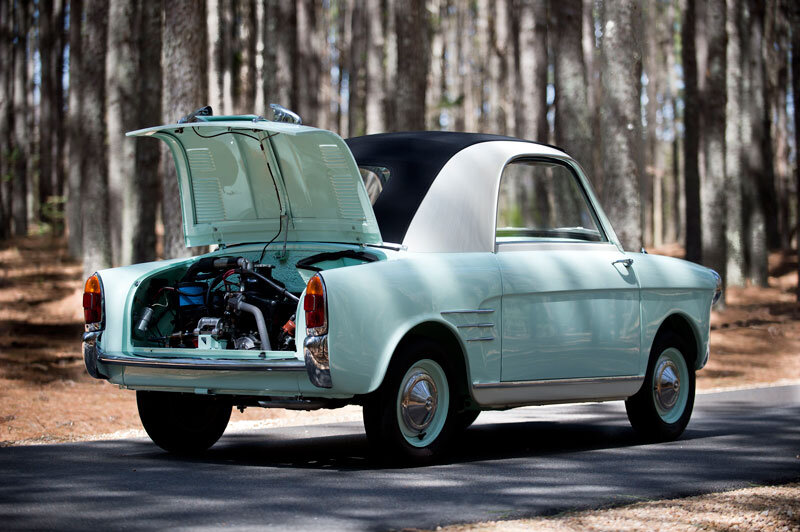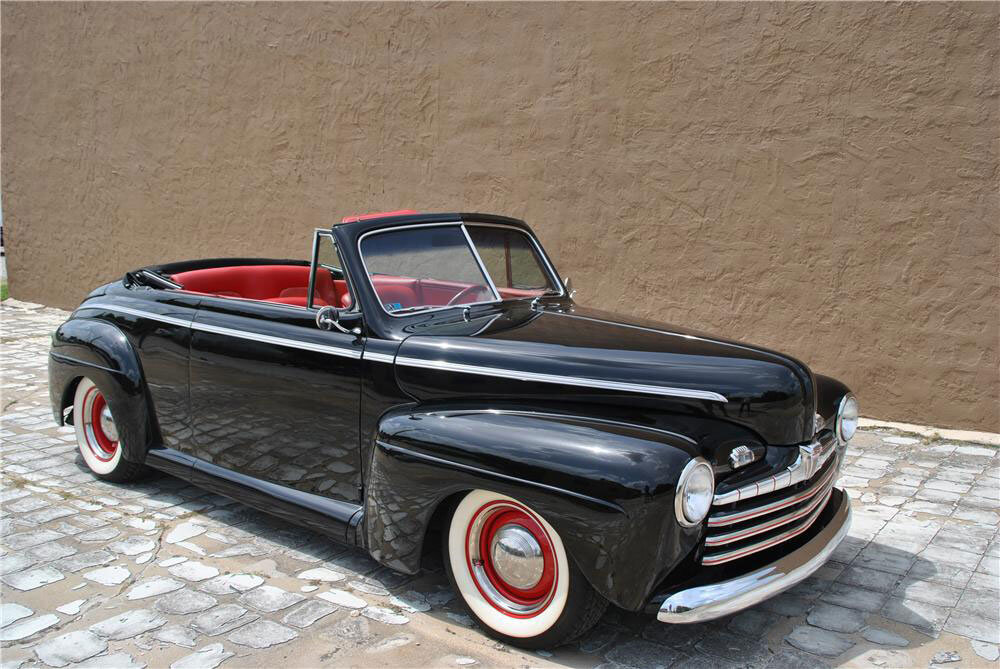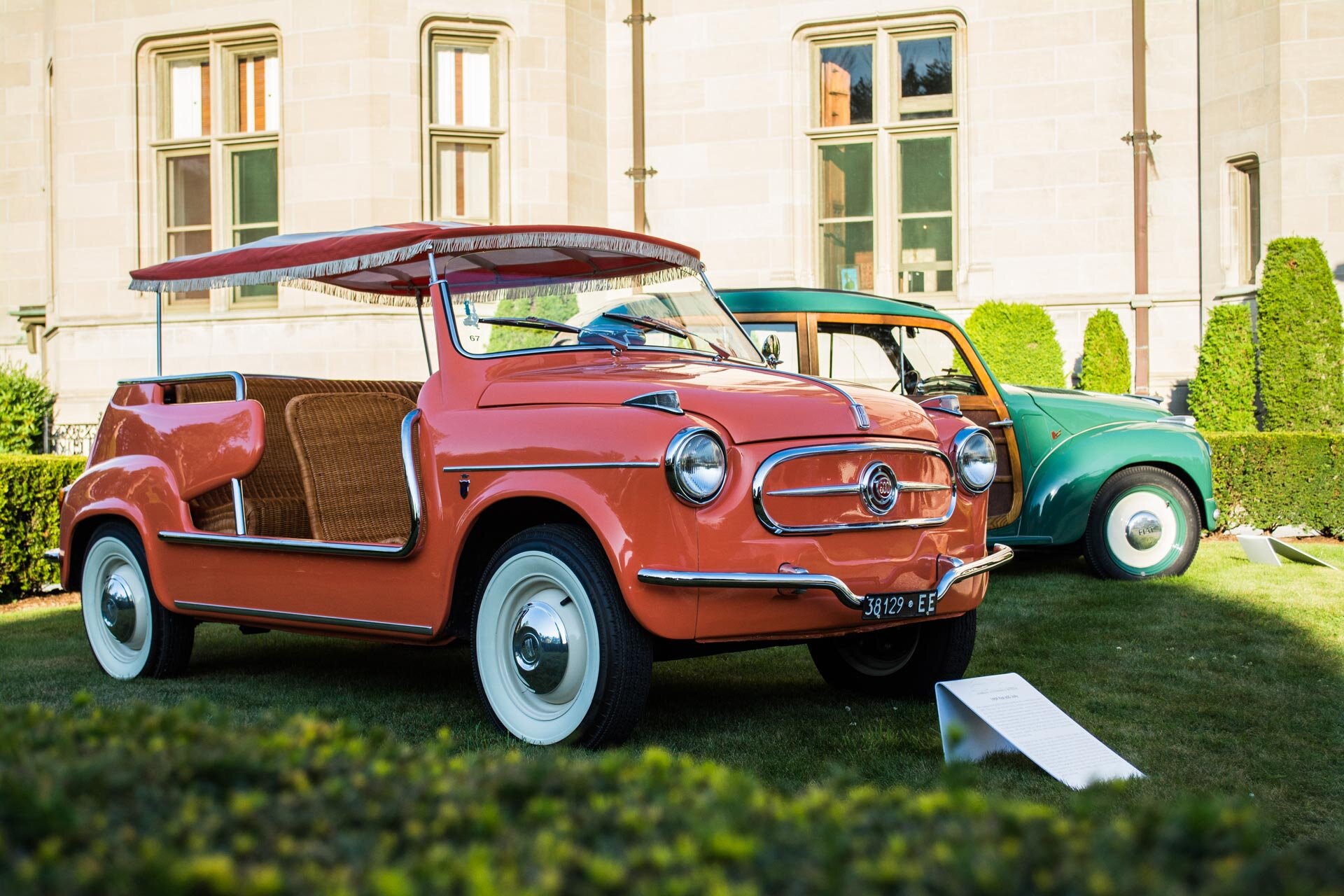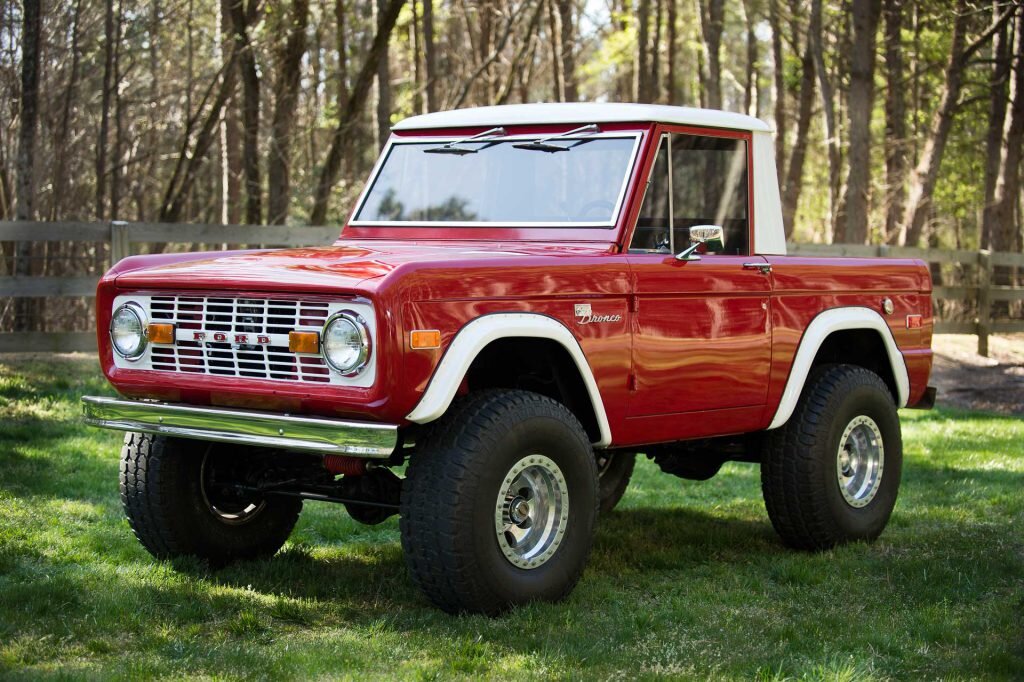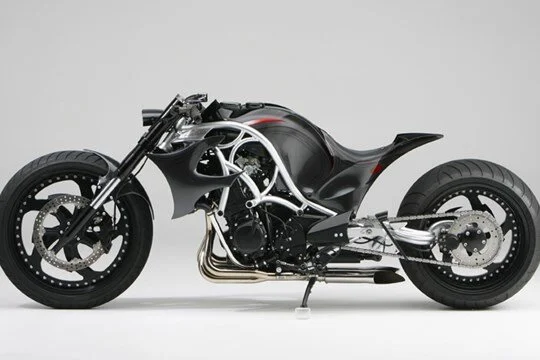1959 Autobianchi Bianchina Transformabile
Specifications
Configuration: Rear engine, rear-wheel drive
Engine: 479 cc OHV 2-cylinder engine
Horsepower: approximately 17 bhp at 4,000 RPM
Transmission: 4-speed manual
A Little History
In 1885, 20-year-old Eduardo Bianchi set up a bicycle-making business in Milan, and before long was making motorized three-wheelers and then, before the turn of the century, four-wheelers. In the 1920s, Bianchi was third behind only Fiat and Lancia in Italian car production.
In 1955, Bianchi approached car maker Fiat and tire maker Pirelli about a partnership, and thus the Autobianchi Company was formed. The first product was the Bianchina, which was based on the Fiat 500, but positioned as a more luxurious, ‘second-car’ alternative.
The first body style to roll off the assembly line was the Trasformabile and would remain as the only body-style available until 1960, when the Cabriolet (roadster) was introduced. Other configurations included the Berlina (saloon), Panoramica (station wagon), and Furgoncino (van).
The Trasformabile featured a fixed B-pillar and partial roof, as the rest of the opening was covered with a foldable fabric hood. With their peppy, air cooled, rear-mounted 2-cylinder engines, 4-speed manual gearboxes, 4-wheel independent suspension, and 4-wheel hydraulic drum brakes, Autobianchi Bianchinas are excellent examples of some of the world’s finest micro cars.
An Autobianchi Bianchina Cabriolet played a memorable role in the original Pink Panther (1960), starring Peter Sellers.

